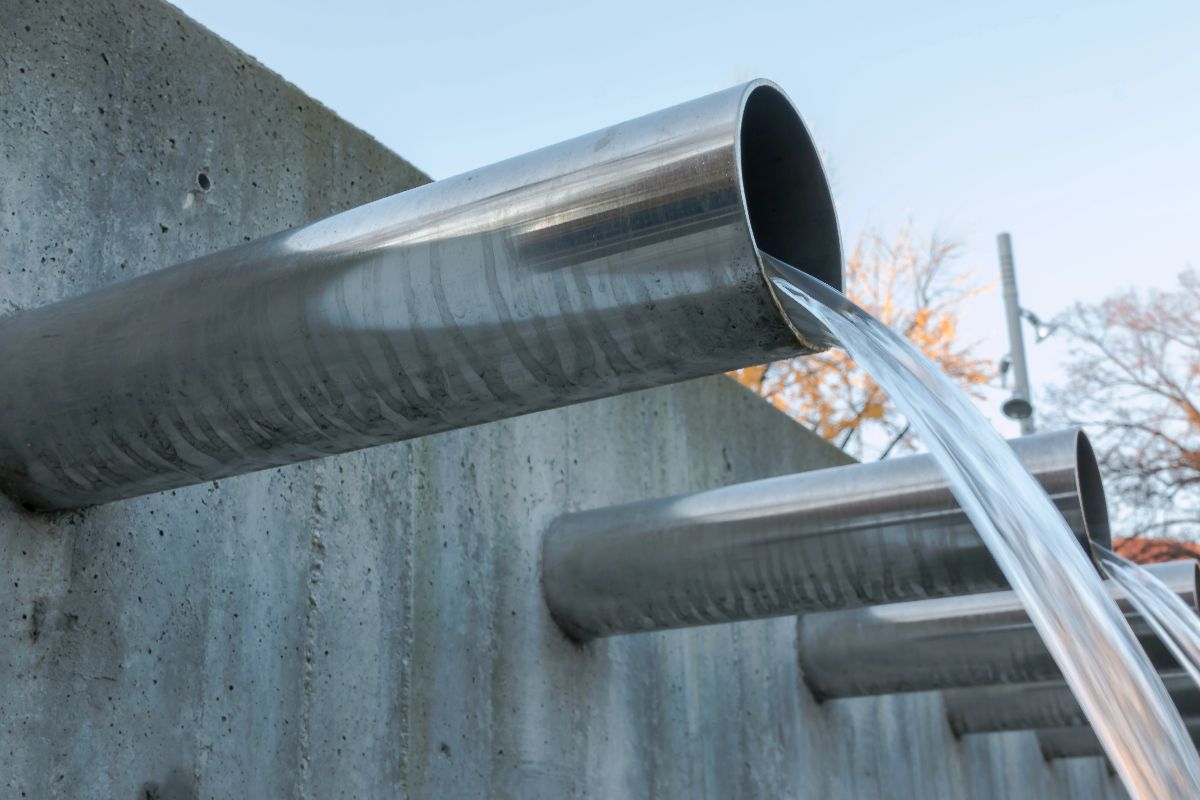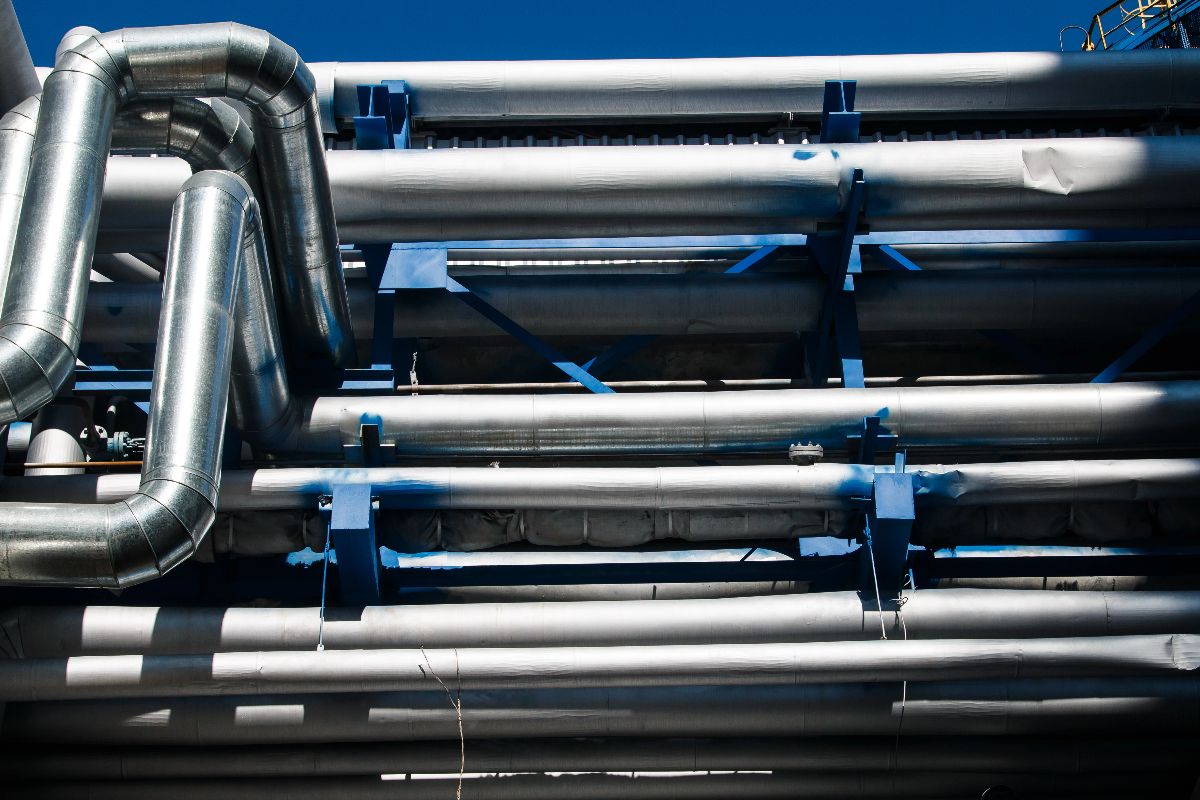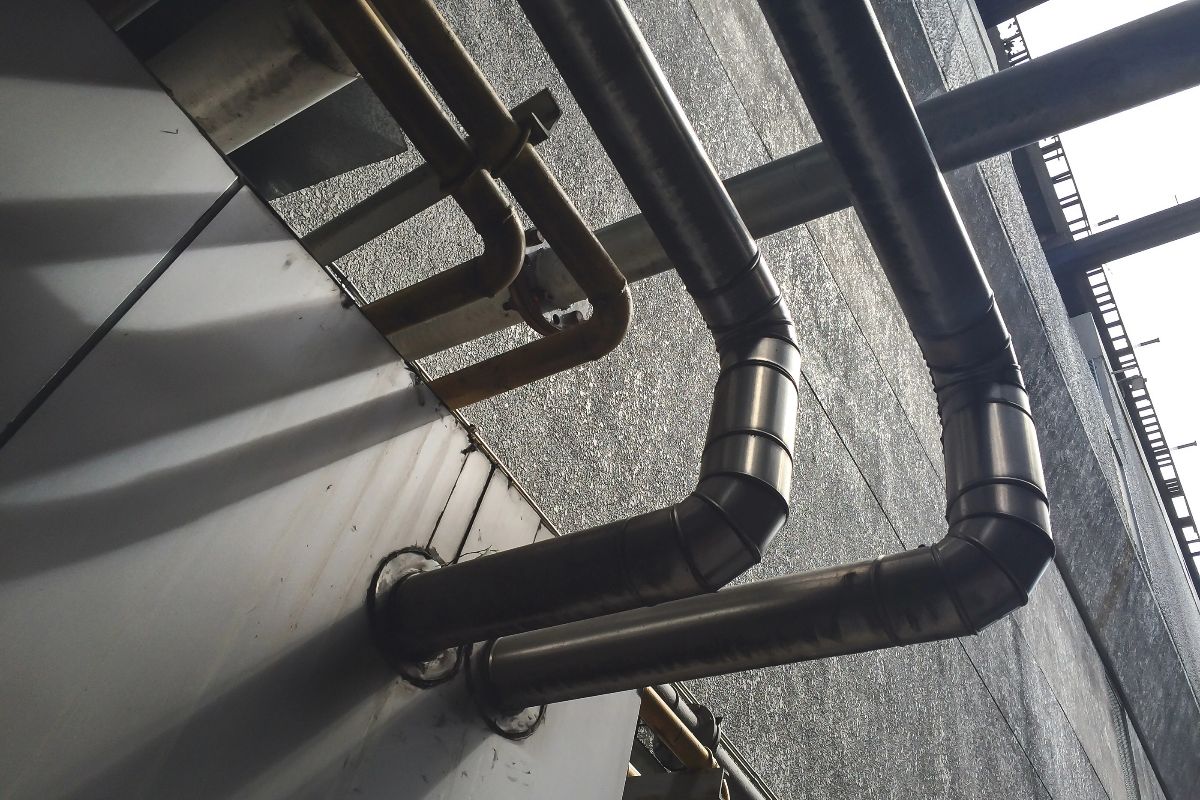
Residential vs. Industrial Plumbing: Which Pipe Material Should You Choose?
Overview
- Choosing the right pipe material is critical for both residential and industrial plumbing, as each system faces unique demands. Industrial networks require pipes that withstand high pressure and chemical exposure, while home systems prioritize safe water delivery and reliable daily performance.
- Stainless steel emerges as the top choice for both settings, offering durability, corrosion resistance, and minimal maintenance.
- Whether for large-scale industrial operations or everyday home use, high-quality steel piping ensures efficiency and safety. Supreme Pipe provides premium steel solutions built to meet these needs.
Choosing the right piping material is crucial for any plumbing system, as every environment presents unique challenges. From home drainage to pressurized factory networks, understanding the different needs of residential plumbing vs. industrial plumbing is key to ensuring lasting efficiency.
One thing is for certain: both applications require high-quality solutions for reliability. That’s where Supreme Steel Pipe Corp. comes in. As a trusted provider of ISO-certified steel pipes in the Philippines, we offer precision-engineered products designed to perform across a wide range of applications.
Continue reading to learn which materials best suit each type of plumbing system.
Industrial Plumbing

Piping networks in industrial settings power large-scale operations that depend on steady fluid movement. Since these setups face constant pressure and chemical exposure, they require materials built for exceptional endurance.
Choosing high-tensile pipes ensures lasting productivity and safety throughout operations.
Stainless Steel
Stainless steel is ideal for industrial plumbing because it maintains strength under high pressure and temperature. Its chromium content forms a thin, protective layer that resists corrosion and chemical damage.
Industries such as food processing and chemical manufacturing rely on stainless steel for consistent fluid flow and thermal endurance. These qualities allow them to operate for longer time periods, minimizing maintenance needs and sustaining operational efficiency.
For processes that require clean fluid distribution, suppliers like Supreme Pipe Corporation offer high-quality steel piping designed to meet quality standards. We ensure that our solutions support safe production throughout operations.
Cast Iron
Cast iron pipes are known for their sheer toughness, making them ideal for heavy-duty drainage systems. Their thick walls allow them to endure high-pressure applications, making them dependable for industrial waste and sewer systems. This density also helps reduce vibration and noise in mechanical setups.
However, cast iron’s primary limitation is its susceptibility to corrosion, especially when exposed to moisture or aggressive chemicals. Many industries allot budgets to reinforce these pipes with protective linings just to extend their lifespan.
Copper
When it comes to flexibility, copper becomes a top option for specialized industrial setups like HVAC systems or water supply distribution. Its heat conductivity allows it to tolerate both high temperatures and pressure with little to no trouble. Unlike other materials, copper also possesses natural antimicrobial properties, which help maintain cleaner water systems.
One of the main considerations for copper is its costs — copper is more expensive and less corrosion-resistant than stainless steel. It is most efficient for applications with less chemical exposure.
Residential Plumbing

Every household relies on uninterrupted water flow for comfort in daily routines, so the plumbing system must be built to support this need. Lightweight to moderate materials ensure each connection functions properly without leaks or wear.
When the right piping is used, homes stay efficient and worry-free throughout the residents’ stay.
Stainless Steel
Households rely on clean water every day, and stainless steel pipes provide a reliable solution for safe water delivery. From showers and sinks to kitchen taps, these pipes prevent contamination and ensure every drop of water is safe for daily use. Companies like Supreme Pipe provide sustainable steel piping designed to meet these needs.
Beyond safety, stainless steel also adds a modern touch to exposed installations. Its sleek, polished finish complements contemporary home designs while minimizing maintenance. Families can enjoy peace of mind knowing their plumbing system is both functional and aesthetically pleasing.
Polyvinyl Chloride (PVC)
PVC is a cost-effective solution widely used for drainage and cold-water systems in residential setups. Its lightweight nature and easy installation make it ideal for quick home projects. Plus, the material is also corrosion-resistant, ensuring it won’t degrade immediately when exposed to moisture.
While it works well for rainfall or indoor moisture exposure, its limited heat tolerance makes it unsuitable for hot-water applications. PVC is a thermoplastic: it softens at high temperatures. These can cause it to release harmful substances such as vinyl chloride monomer, which may contaminate water and pose health risks.
Contractors often pair PVC with stainless steel to create stable, safe plumbing systems.
Cross-Linked Polyethylene (PEX)
PEX offers better flexibility and convenience compared to rigid piping materials. Its ability to bend around corners and connect easily makes it ideal for retrofitting older homes or optimizing space in tight installations. The material also resists scale buildup and corrosion, ensuring clean water flow.
While excellent for hot-water lines, PEX should be installed indoors to prevent ultraviolet (UV)-related degradation. Prolonged exposure destroys the material’s chlorine inhibitors, making it more vulnerable to cracking and discoloration.
Residential vs Industrial Plumbing: Which Pipe Material is Best for Use?
While each application has its own set of performance requirements, stainless steel remains the most versatile choice for both. Its superior durability, cleanliness, and adaptability make it a dependable option for both homes and industrial facilities alike.
For top-tier stainless steel pipes that meet local and international standards, Supreme Pipes Corporation offers solutions built for lasting performance. Our commitment to precision and quality assurance has earned the trust of professionals across industries.
| Type of Application | Benefits of Stainless Steel Pipes |
| Residential Plumbing |
|
| Industrial Plumbing |
|
Key Takeaway
Understanding the material differences between residential vs. industrial plumbing is essential to choosing pipes that meet each system’s specific demands. Among all options, stainless steel remains the most reliable choice for its balance of strength and longevity.
Supreme Pipe provides premium-grade steel pipes for every application, ensuring quality performance and regulatory compliance. Contact us today to learn more about efficient plumbing solutions for your next project.


